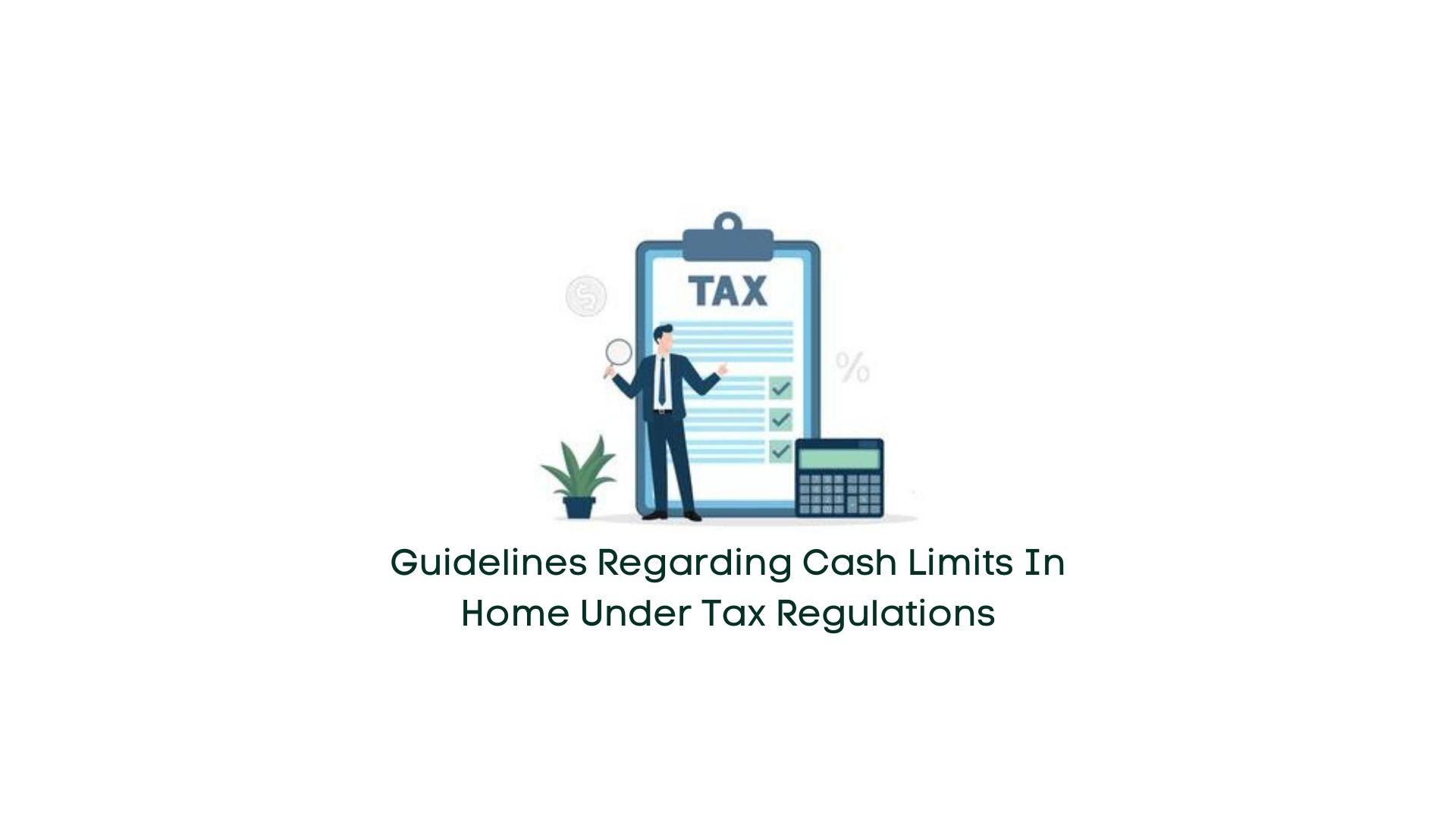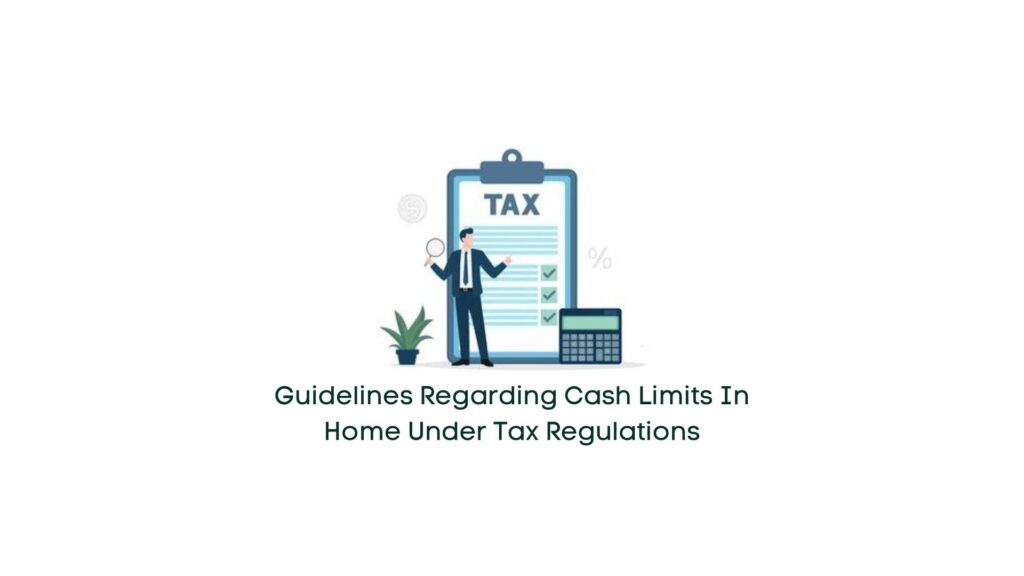
22 Mar Guidelines Regarding Cash Limits in Home under Tax Regulations

Under the provisions of the Income-Tax Act (ITA) of 1961, there exists no stipulation on the maximum amount of cash permissible to be kept within one’s residence. However, during an income tax inspection, individuals must provide verifiable sources for the cash in their possession.
This particularly applies to funds that must be accounted for in terms of income. If the documentation provided by an individual does not align with the amount of cash found at their residence, income tax authorities possess the authority to penalize them. In such instances, unaccounted cash can be seized, with penalties reaching as high as 137% of the total amount.
It is imperative to consider the subsequent regulations regarding cash, as mandated by the income-tax department:
- Prohibition on accepting cash amounts of Rs 20,000 or more for loans or deposits: The income-tax department strictly prohibits individuals from accepting cash sums of Rs 20,000 or higher in relation to loans or deposits.
- Compulsory presentation of Permanent Account Number (PAN) for transactions exceeding Rs 50,000: According to the directives of the Central Board of Direct Taxes (CBDT), individuals are required to furnish a PAN card for transactions involving deposits or withdrawals exceeding Rs 50,000 at a time.
- Scrutiny by investigative agencies for cash-based asset transactions surpassing Rs 30 lakh: Indian citizens involved in cash transactions exceeding Rs 30 lakh concerning the purchase or sale of assets may come under scrutiny by investigative agencies.
- Investigation into credit or debit card transactions surpassing Rs 1 lakh: Any single transaction exceeding Rs 1 lakh made through credit or debit cards is likely to attract the attention of investigative agencies.
- Imposition of a 2% Tax Deducted at Source (TDS) on withdrawals surpassing Rs 1 crore: Individuals withdrawing over Rs 1 crore in cash from banks within a financial year are subject to a 2% TDS deduction.
- Penalty for cash transactions surpassing Rs 20 lakh: Cash transactions exceeding Rs 20 lakh in a year may lead to penalties, while the purchase or sale of cash-based property worth more than Rs 30 lakh could prompt investigations by regulatory bodies.
- Restrictions on cash payments: Limits include refraining from making cash purchases exceeding Rs 2 lakh without PAN and Aadhaar details, as well as restrictions on credit or debit card transactions exceeding Rs 1 lakh.
- Regulations on familial transactions and loans: Accepting cash sums exceeding Rs 2 lakh from a relative in a single day or obtaining loans exceeding Rs 20,000 in cash from any individual are prohibited.
Adhering to these regulations is essential to avoid legal consequences and ensure full compliance with income tax laws and regulations.


No Comments